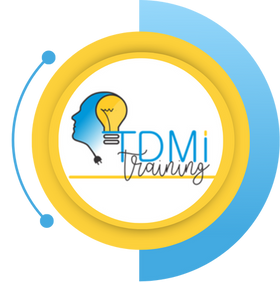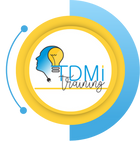How to Register for Wireman’s Licence (Registered Person)
Introduction
Becoming a licensed wireman in South Africa is more than just a professional milestone—it’s a legal necessity for anyone who wants to issue Certificates of Compliance (COCs) and work independently on electrical installations. Whether you're aiming to become a single-phase tester, installation electrician, or master electrician, passing the wireman’s licence exam is a critical step.
This comprehensive guide is tailored for those enrolling in or considering TDMI’s EWSETA-accredited training. We’ll walk you through every requirement, from prerequisites to exam tips, helping you prepare strategically and confidently.
Understanding the Wireman’s Licence & Its Importance
Why You Need a Wireman’s Licence
A wireman’s licence is not just a credential—it’s a regulatory requirement under South African law for electricians who perform, inspect, and certify electrical installations. Without it, you cannot issue COCs or be recognised by the Department of Labour.
Professional Advantages
-
Access to higher-paying projects
-
Ability to work independently or run your own electrical business
-
Enhanced credibility with clients and employers
-
Eligibility for tenders and large contracts
Who Can Apply: Categories of Registered Persons
Types of Wireman’s Licences
Depending on your qualifications and experience, you can apply under one of three categories:
-
Single-Phase Tester (Green Card): Basic domestic installations
-
Installation Electrician (Orange Card): Residential and light commercial
-
Master Installation Electrician (Red Card): All installation types including hazardous locations
Choosing the Right Category
Your category depends on your experience, scope of work, and qualifications. TDMI provides guidance on which path aligns with your goals.
Educational & Theoretical Prerequisites
Minimum Qualifications
To be eligible, you must meet the following educational requirements: Sample for IE:
-
N3 Certificate or higher (or equivalent)
-
Minimum 40% in Mathematics, Engineering Science, and Electro-Technology
Alternative Routes
-
Recognised trade test in electrical
-
Completed apprenticeship in relevant trade
-
Engineering diploma or degree
TDMI’s flexible learning paths accommodate learners from diverse educational backgrounds.
EWSETA Unit Standards: Inspection, Testing & Certification
What Are Unit Standards?
Unit Standards are specific modules required to demonstrate competency in testing, inspection, and certification of installations. These standards are aligned with EWSETA’s national qualification framework.
Examples of Required Unit Standards
-
Conduct an inspection and test on a single-phase installation
-
Explain basic principles of electrical installations
-
Issue a certificate of compliance for an installation
Assessment Process
-
Training and practical work
-
Competency assessment by a registered assessor
-
Results uploaded to EWSETA database
TDMI courses are designed to cover each unit standard in a structured and easy-to-understand format.
Passing Installation Rules Papers P1 & P2
What the Exams Cover
-
SANS 10142-1 (Wiring Code of Practice) and other SANS codes relevant.
-
Occupational Health and Safety (OHS) Regulations
-
Circuit design, surge protection, earthing, and fault-finding
Structure of the Exam
-
Paper 1: Theory and code interpretation
-
Paper 2: Calculations and applied electrical principles
-
Passing Mark: 50% for each paper
Importance of These Exams
Without passing both papers, you cannot qualify for your IE wireman’s licence although you may obtain your SPT license without Installation Rules. TDMI offers comprehensive study material, mock exams, past papers, and calculation workshops to boost success rates.
Preparing Strategically with TDMI’s Online Courses
Why Choose TDMI
-
EWSETA-accredited
-
Online access allows learning at your own pace
-
Flexible payment options
-
Direct support from qualified mentors
Course Options
-
Unit Standards Electrical Course
-
Installation Rules P1 & P2
-
Motors and Starters Course (recommended add-on)
-
Solar Excel Course (for renewable specialisation)
Benefits for Busy Professionals
-
Study from anywhere
-
Access to recorded lessons and downloadable resources
-
Progress tracking and reminders
Study Tips & Resources for Exam Readiness
Planning Your Study Time
-
Break your study into daily 1–2 hour sessions
-
Focus one week on SANS content, another on calculations
-
Use timers and accountability tools
Leveraging Past Papers
-
Practice with real exam questions
-
Learn time management for each paper
-
Identify weak areas early and review repeatedly
Study Techniques That Work
-
Flashcards for key concepts
-
Mind maps for circuit logic
-
Group study or peer mentoring
How to Submit Your Application to the Department of Labour
Documents You Will Need
-
Certified trade test certificate or qualification
-
Results for Installation Rules P1 & P2
-
EWSETA statement of competency
-
Completed application form (DoL)
-
TDMI Training assist in this complete process
Application Procedure
-
Submit via supplied Labour Department offices
-
Allow 6 months for processing
-
Check status periodically and retain receipts
Tips for a Smooth Application
-
Ensure all copies are certified within 3 months
-
Double-check assessor signatures and EWSETA registration
-
Label documents clearly and organise them chronologically
-
TDMI prepares this on your behalf.
Common Exam Pitfalls & How to Avoid Them
Avoiding Delays
-
Don’t wait until the last minute to start exam prep
-
Keep digital and physical copies of all paperwork
-
Use only accredited training providers like TDMI
Staying Compliant
-
Don’t rely on unauthorised facilitators promising "quick licences"
-
The Department of Labour rejects unverified documentation
FAQs: What Candidates Often Ask
How Long Does the Whole Process Take?
Typically 1 year from entry-level qualification to licencing, depending on pace and prior experience.
Can I Rewrite the Exams?
Yes. Candidates who fail can resit the papers.
What Happens After I Pass?
Once licenced, your name will appear in the Department of Labour's database. You can then register as a electrical contractor and legally issue COCs and open your own practice.
Is Renewal Required?
The licence itself does not expire, but electricians must stay updated with new SANS amendments and regulatory changes. Contractors registration should be renewed every 3 years.
Conclusion
Passing your wireman’s licence qualification is a major achievement that unlocks greater earning potential and professional independence. By meeting all the educational, theoretical, and practical requirements—and studying smartly with TDMI’s accredited resources—you set yourself up for long-term success.
Whether you’re just starting out or upskilling to meet installation rules requirements, TDMI's flexible online training and expert support offer everything you need to pass your qualification with confidence.
Ready to get started? Enrol with TDMI today and take the first step towards becoming a licensed professional in South Africa's growing electrical industry.


I have a electrical trade yest and I would like to complete my wiremans license as a master electrician. I need the cost of the course and duration for part time and full-time.
Leave a comment